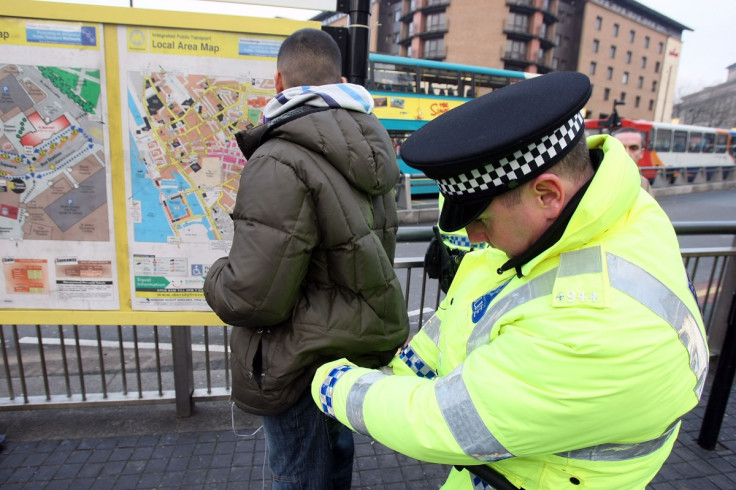Stop and search finds more drugs on white suspects but black people still targeted by police

KEY POINTS
- Report on stop and search shows "troubling" disparity in results.
- Thirty-three percent of white people searched were in possession of drugs compared to 25% for black suspects.
- Police urged to tackle "unconscious bias" when using tactic.
White people who are stopped and searched by police are more likely to have drugs on them compared to black people despite being disproportionately checked more, figures have shown.
A report by the Inspectorate of Constabulary on how police forces in England and Wales can improve the legitimacy of stop and searches found that 33% of white suspects searched for drugs were found to have illegal substances on them compared to 26% of black suspects.
The results were consistent on the grounds the officers searched the suspects solely on the basis they smelled of cannabis (37% white and 29% black).
The report highlights the "troubling" disparity in results as data shows that black people are eight times more likely to be stopped and searched by police.
The report also suggests that the use of stop and search on black people "might be based on weaker grounds for suspicion" than its use on white people, particularly in respect of drugs.
Among some of the recommendations in the report is that police forces should implement further training to "tackle unconscious bias" and to address any reasons for disproportionate use of stop and search.
The report shows that the use of stop and search powers has declined from 1.1 million in 2011/12 to 301,000 in 2016/17. However, during this period stop and searches on white people decreased by 78%, but only by 66% for black people.
HMI Mike Cunningham, who led the inspection, said: "The extent to which police forces act in a fair and respectful way towards the communities they serve is a vital influence on public trust and confidence.
"So I'm pleased to report that the police service overall continues to demonstrate its commitment to maintaining legitimacy in the eyes of the public, including acting ethically and lawfully and treating all the people they serve with fairness and respect.
"We assessed well over three quarters of forces as either 'good' or 'outstanding' in this regard. But that is not to say that there aren't elements forces could and should improve upon. Of particular concern is the continuing over-representation of black people in stop and search figures.
"Forces must be able to explain the reasons for any disparity in their stop and search figures if they are to enhance the trust and confidence of all communities."
When she was home secretary, Theresa May previously warned "excessive and inappropriate" use of stop and search damages public confidence in the police. She also championed the move to decrease the practice, believing the tactic was a "waste of time".
National Police Chiefs' Council Lead for Stop and Search, deputy chief Constable Adrian Hanstock said stop and search should be regarded as a safeguarding power in the wake of rising knife crime as well as increasing incidents involving acid as "the fear of being stopped and found in possession of weapons is one of the most powerful deterrents".
He added: "We are working closely with the Home Office, College of Policing and a range of independent experts to critically analyse the data we collect, as well as commission further research to help us better understand why some groups, such as young black men, are disproportionately reflected not only in stop and search figures but also as victims of violent crime and across the criminal justice system as a whole."






















